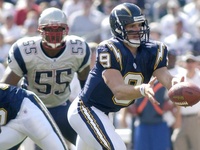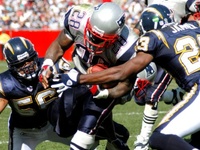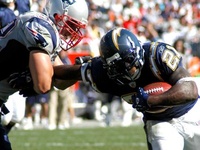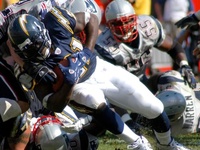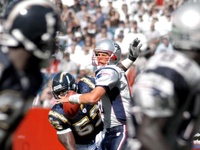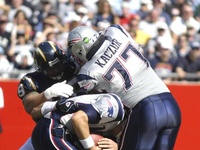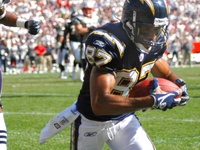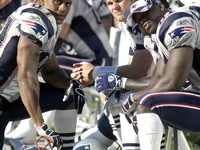But Sullivan had his eye on another prize:
Harvard Stadium.
Yes, that Harvard Stadium, with its 40,000 seats and additional room for temporary stands.
Harvard refused to lease it. So Sullivan promoted a bill that would permit the state of Massachusetts actually to assume ownership of the field on the grounds of eminent domain: Harvard, ostensibly, was blocking the completion of a necessary public project.
Yes, way before the controversial decision of Kelo v. New London—way before people tried to reclaim Supreme Court Justice David Souter’s house—there was something along the lines of Patriots v. Harvard.
Multimedia
Ultimately, Sullivan got his way. For a while, at least.
In 1970, the Boston Patriots actually played all their home games across the river. Crowds lined the bridges to Allston and the Soldiers Field area to take in the Pats, the same way people take the long ride on the special events commuter rail to Foxboro today.
But as we all know, things didn’t stay that way for long.
That same summer in 1970, Patriots ownership finally opened a “suitable” stadium in Foxboro. The team was rechristened under the pan-Bostonian banner of New England. And over thirty years later, the Gillette Stadium of today was born.
But for one semi-glorious season, you see, the paths of Harvard and pro football intersected in the biggest way. Sure, it may not have been exactly voluntary. And it may not have been ideal, for either party.
But I guarantee that it would have taken less than an hour to get to the game.
—Staff writer Pablo S. Torre can be reached at torre@fas.harvard.edu.









